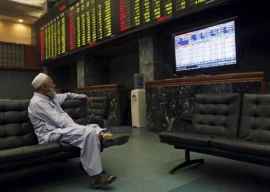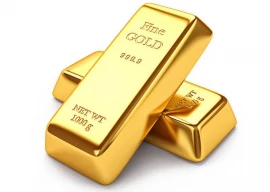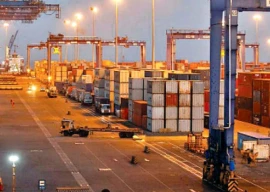
The federal government has asked provincial administrations to take action against petroleum product dealers for failing to pass on the full impact of price reduction to consumers.
The federal government has slashed petroleum prices several times but the entire benefit has not reached consumers owing to the poor administrative control of provinces. Now, the government has asked provinces to take strict administrative measures in this regard.
The issue was taken up in a recent meeting of the National Price Monitoring Committee (NPMC).
Speaking at the huddle, the Ministry of Planning, Development and Special Initiatives secretary, while recalling the decisions taken in the previous NPMC meeting, urged provincial governments to implement the decisions, particularly regarding the reduction in petroleum product prices and the administrative steps required in that regard.
He said that the Pakistan Bureau of Statistics (PBS), in compliance with the previous decisions, should prepare a report on the major drivers of change in the rate of inflation.
It was noted that the provincial governments would share their reports on the reduction in petroleum prices and the necessary steps taken.
The Ministry of National Food Security and Research economic consultant, while responding to a query from meeting chairperson about pulses, said that most of the pulses were imported (over 60% of the total supply) while local production comprised moong and gram. However, "the production of gram largely depends on rainfall in Sindh and some southern areas of Punjab".
A representative of the Punjab government informed meeting participants that the area under pulses cultivation was declining. "The provincial government intends to conduct a study to develop a policy for enhancing their production," the official said.
PBS deputy director general (industry/trade/prices) presented an overview of the recent commodity prices situation in the country. The committee reviewed the inflation data, particularly for food and essential commodities.
Inflation, as measured by the Consumer Price Index (CPI), decreased to 4.9% in November 2024 from 29.2% in November 2023 and from 7.2% in October 2024.
A substantial decrease was observed in both urban and rural food inflation, which stood at 1.7% and -0.2%, respectively, in November 2024 compared to 29.8% and 29.2% in November 2023.
The Sensitive Price Indicator (SPI) for the week ended December 5, 2024 decreased 0.34% on a weekly basis and increased 3.57% on a yearly basis.
During the week under review, out of 51 items, prices of 18 items increased, 10 items decreased and the rest remained stable. An increase in prices of garlic, vegetable ghee, potatoes, petrol, diesel, onions, sugar and cooking oil was observed during the week.
The Azad Jammu and Kashmir (AJK) chief secretary requested the inclusion of three cities of the region in the Decision Support System for Inflation (DSSI) as it would help monitor commodity prices in AJK.
PBS member (support services) responded that AJK prices were not included in the DSSI since it was not covered under the CPI. However, the PBS will make separate arrangements for the region.
Responding to a query from the meeting chair about the impact of online stores on prices, the PBS revealed that their next survey would include weights of online markets and Sasta Bazaars to account for the price impact of those markets.
After a detailed discussion, the committee decided that the Ministry of National Food Security and Research would make a separate presentation on pulses cultivation and supply at the next meeting.
The Punjab government will share a study on the decrease in the production of pulses and their strategy at the earliest.
It decided that the State Bank of Pakistan would submit an in-depth analysis of various drivers of the change in inflation rate. The Ministry of Planning, Development and Special Initiatives will conduct a preliminary study on the likely impact of increase in online purchases on the price level.


1720097164-0/BeFunky-collage-(9)1720097164-0-165x106.webp)


1734567485-0/Untitled-design-(54)1734567485-0-165x106.webp)

1722065362-0/BeFunky-collage]-(56)1722065362-0-270x192.webp)










COMMENTS
Comments are moderated and generally will be posted if they are on-topic and not abusive.
For more information, please see our Comments FAQ